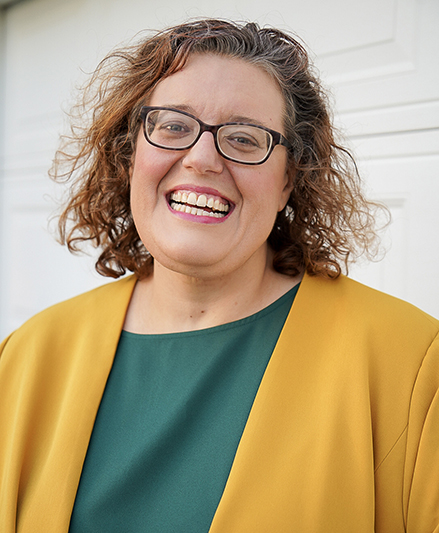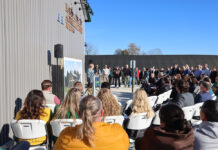Dr. Theresa Cullen grew up in Wisconsin and attended college near the Missouri-Iowa border, but the atmosphere at Arkansas Tech University instantly made her feel at home.
“I have been so impressed by Tech so far,” said Cullen. “Someone from another university asked me what my first impressions were. I told them these are probably the hardest-working professors I’ve ever met. They are so dedicated to the students. A lot of places say that every student counts, but I’m seeing it in the way people live, the way they talk about students and the way they are willing to go above and beyond for students at Arkansas Tech. That has made me feel very good about my choice.”
Cullen, who holds the faculty rank professor of curriculum and instruction, took office as head of the ATU Department of Curriculum and Instruction on July 1. She came to Arkansas Tech from the University of Oklahoma, where she was an associate professor and the John and Jane Kenney Endowed STEM Fellow in the Jeannine Rainbolt College of Education. Cullen was on the faculty in Norman from 2006-20 after previously serving as an associate instructor at another large, research-driven institution — Indiana University — while working on her doctoral degree.
She pursued the department head position at Arkansas Tech because she wanted to return to an environment more similar to the one at Northwest Missouri State University, where she earned her Bachelor of Science in Education degree, her Master of Science degree in school computer studies and once served as an instructor in computer science and information systems.
“Larger universities are placing much more emphasis on research efforts, and I found out that I wanted to be more focused on students,” said Cullen. “That’s what attracted me to Arkansas Tech. I knew that Tech was focused on students, but I’ve been really surprised by the lengths to which we go as a university to show that we care for students. I had missed that, and I am excited to be a part of that.”
Cullen’s interest in integrating technology and learning is what drove her to earn a Master of Science degree and a Doctor of Philosophy degree in instructional systems technology from Indiana University. She has since been named an Apple Distinguished Educator, served on the Oklahoma State Department of Education Technology Advisory Board and the Oklahoma State Department Computer Science Standards Committee Review Board and presided as chair of the Jeannine Rainbolt College of Education Educational Technology Committee at the University of Oklahoma.
“I think anyone can learn technology, and actually some older teachers are better at it because they have classroom management,” said Cullen. “There’s this assumption that younger people are better with technology, and they might be on a personal-use level. I feel like everyone can learn technology. Younger people need instruction on how to use technology in a meaningful way for learning.”
Cullen began her career as a high school science teacher in Wellsville, Mo. She is optimistic about the future of K-12 teaching as an attractive post-pandemic career option for her ATU students.
“I think we’re starting to realize, through this crisis, the importance of teachers as professionals who have the skills to adapt to different learning situations,” said Cullen. “College students today are very concerned about making a difference in their world. If you really want to feel like you’ve made a difference in the world, be in a classroom. This is a place where you can make a difference in a child’s life.”
Making that difference, Cullen said, is about remembering and caring for the humanity of students.
“It’s about relationships,” said Cullen. “When I talk to my friends who are practicing teachers, what I hear is that making sure the students are okay and that they know there is an adult who cares for them is paramount. Of course, I want our teacher candidates to know the science of reading, to be able to teach the proper approach to math and to have good pedagogy, but in the end, it really comes down to managing that relationship with the kids and the families. I think that’s still the most important thing.”
Visit www.atu.edu/education to learn more about the ATU College of Education.






